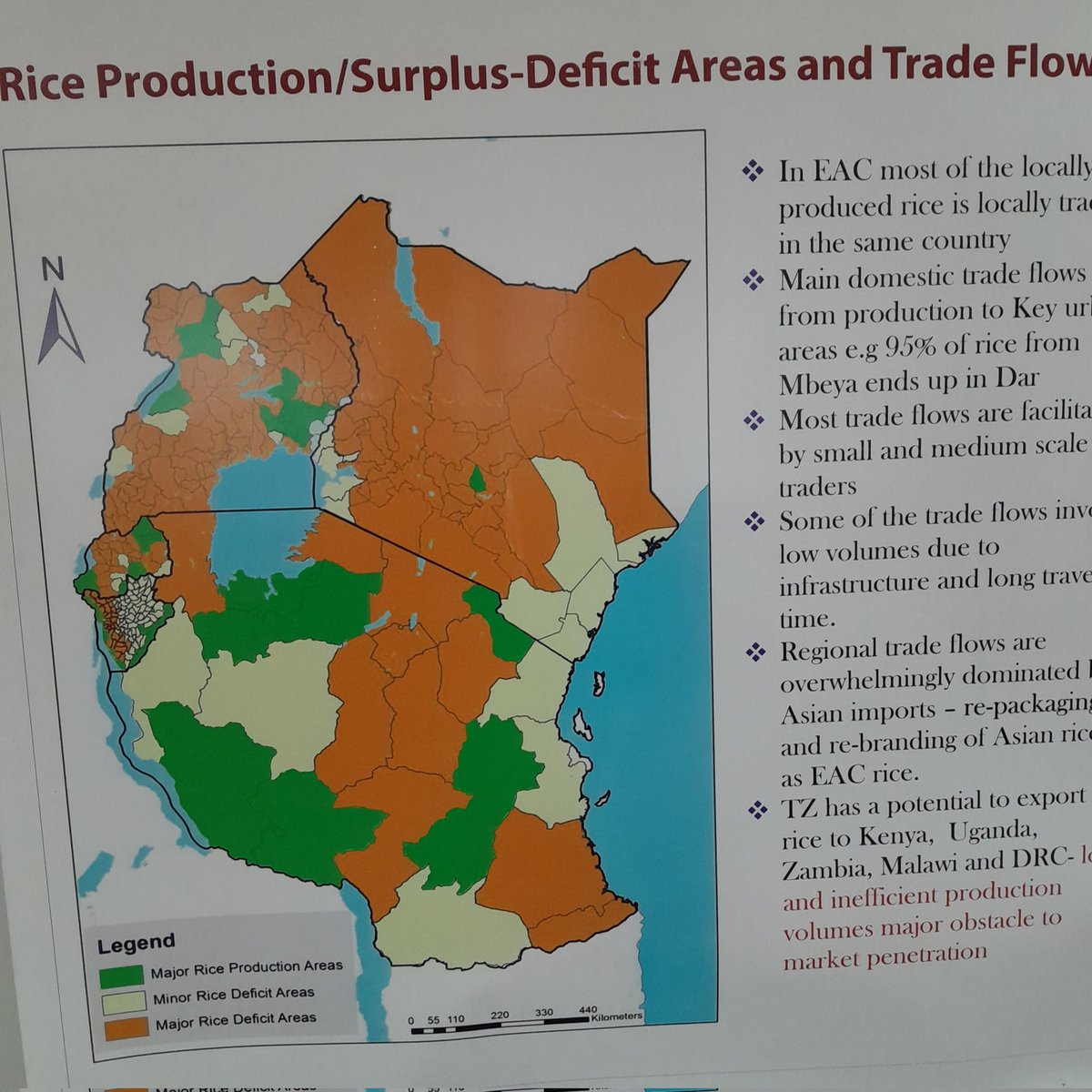Kilimokwanza.org Team
In a recent analysis of the rice production capabilities within the East African Community (EAC), experts have identified the United Republic of Tanzania as a future powerhouse for rice production on the continent.
Prof. Hamadi Iddi Boga, currently serving as Vice President for Program Delivery at AGRA, has highlighted Tanzania’s significant potential in a statement shared earlier this week.
“The United Republic of Tanzania will one day feed Africa with Rice. They have the land. They have the climate,” tweeted Prof. Boga.
The statement coincides with new data showcasing the vast areas of Tanzania marked as major rice production zones. The country’s unique combination of fertile land and favorable climatic conditions sets it apart as an ideal location for rice cultivation.
The map provided by Prof. Boga’s office delineates the current state of rice production, trade flows, and deficit areas within the EAC. It reveals that while most locally produced rice is traded within the same country, there are significant flows from production areas in Tanzania to key urban centers. For instance, about 9.5% of rice from regions like Mbeya finds its way to Dar es Salaam, underlining the internal demand and trade efficiency.
Despite the prominence of small and medium-scale traders in these flows, the map and accompanying notes suggest that regional trade is dominated by imported rice, mainly from Asia. This highlights a current gap in the market that Tanzania could potentially fill.
Further analysis points out that Tanzania has the potential to not only meet domestic demand but also to export to neighboring countries such as Kenya, Uganda, Zambia, Malawi, and the Democratic Republic of the Congo (DRC). However, challenges such as inefficient production methods and lower volumes are obstacles that need to be addressed to increase market penetration and truly realize Tanzania’s potential as Africa’s rice bowl.
With the EAC increasingly looking to ensure food security within the region, the importance of increasing local rice production cannot be overstated. Should Tanzania leverage its agricultural assets and overcome current challenges, it may very well become the cornerstone of a food-secure Africa.
